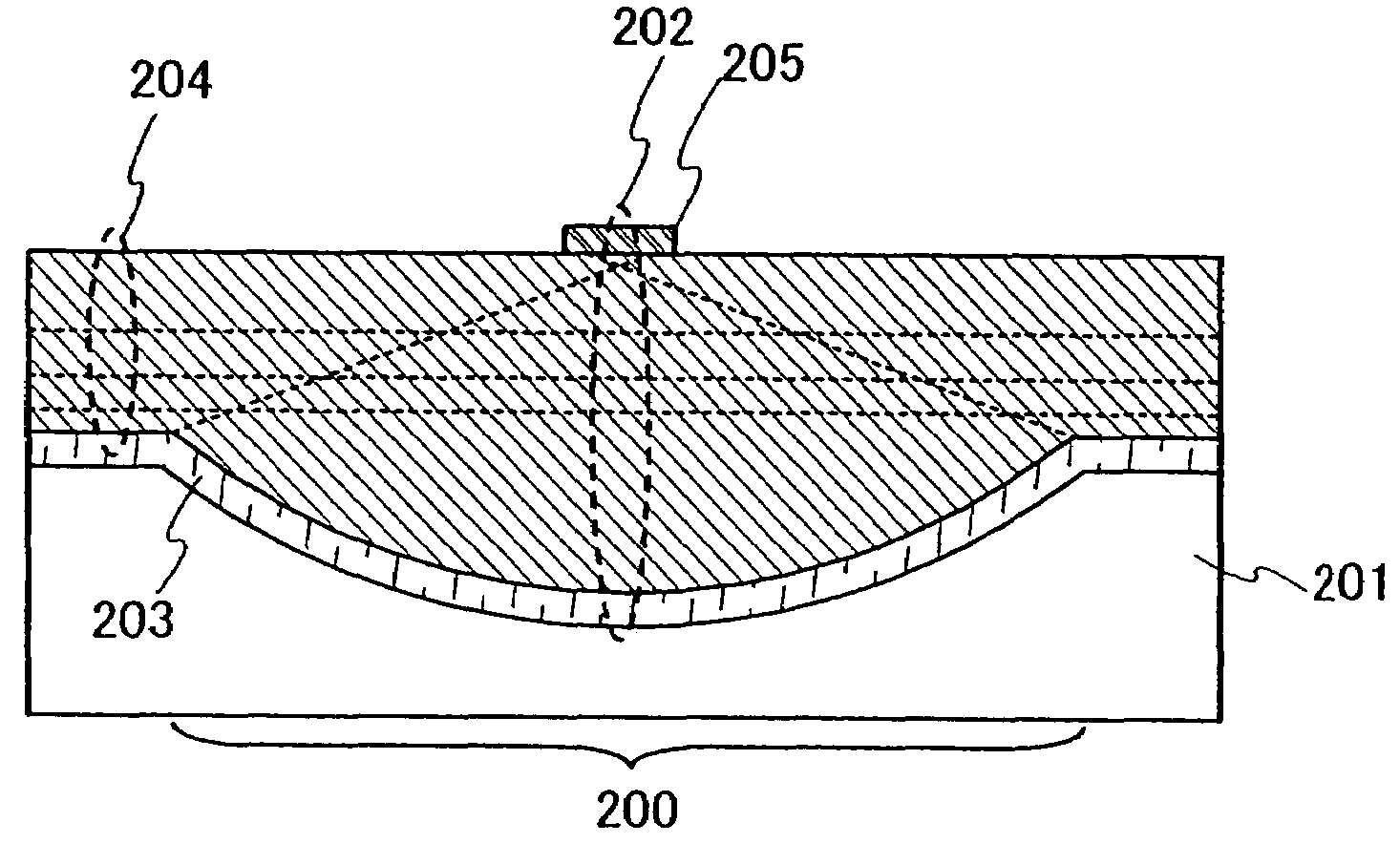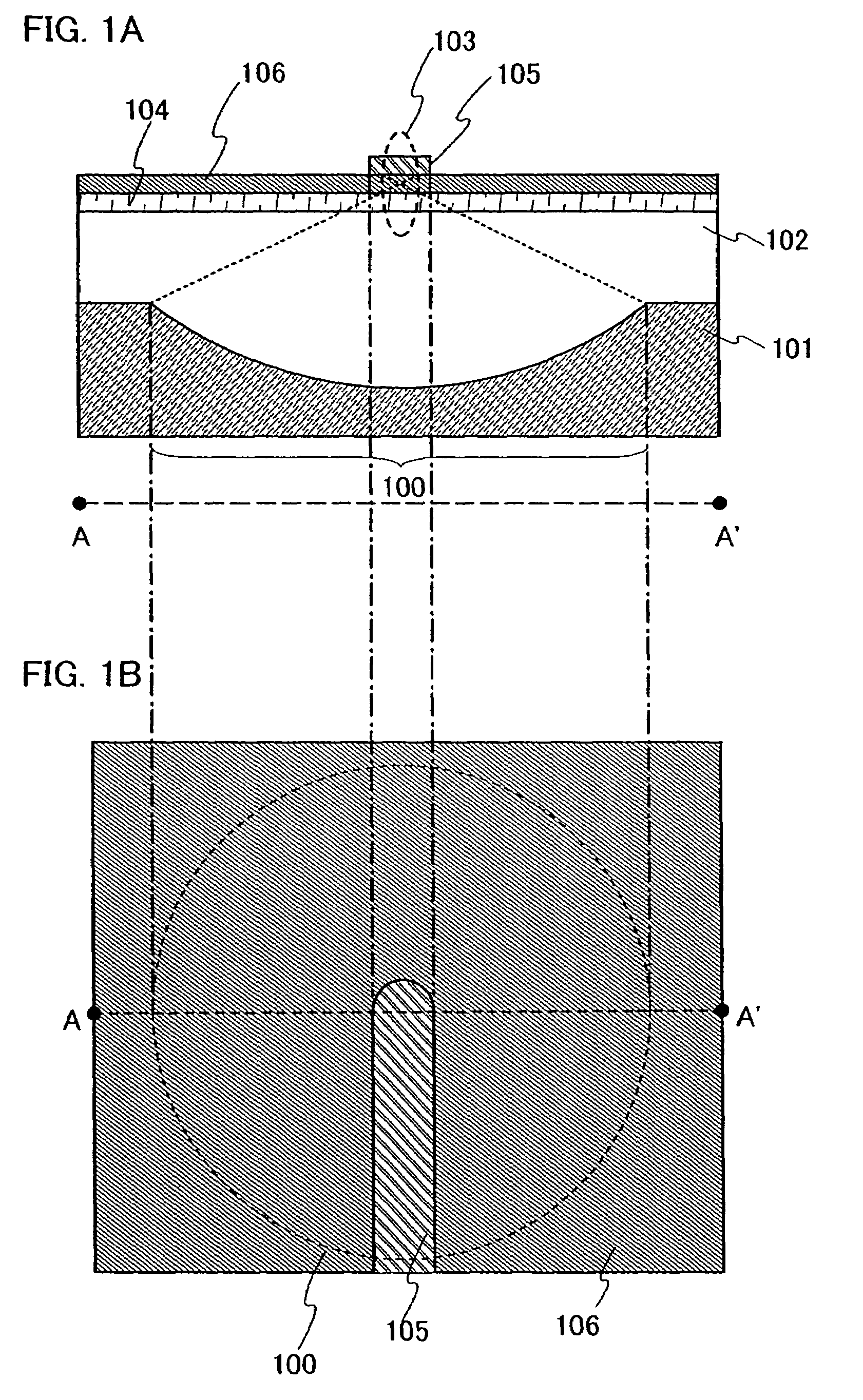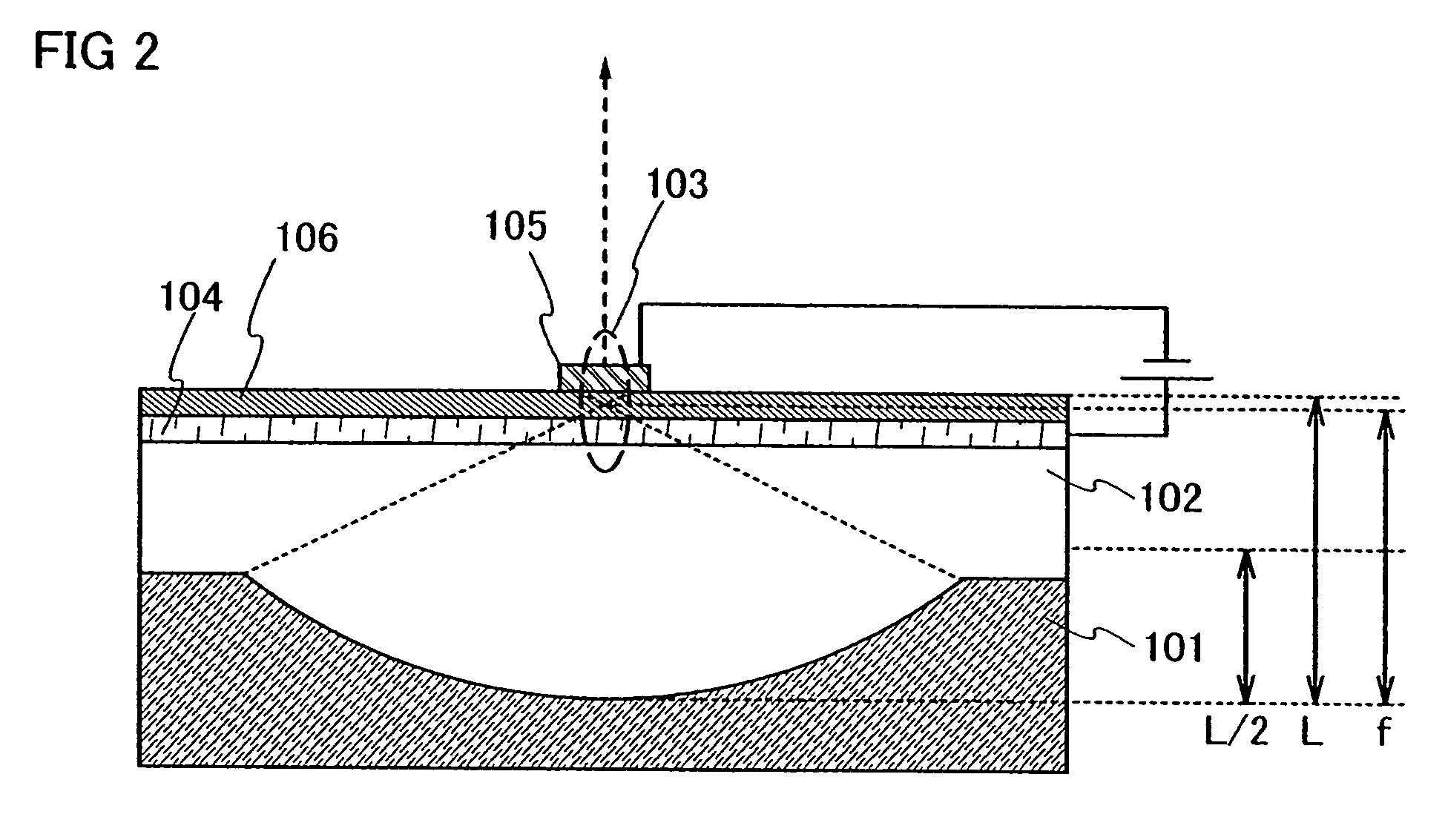Light-emitting device
a technology of light-emitting devices and lasers, applied in the direction of lasers, semiconductor laser structural details, semiconductor lasers, etc., can solve problems such as population inversion, and achieve the effect of reducing power consumption and improving the oscillation efficiency of laser ligh
- Summary
- Abstract
- Description
- Claims
- Application Information
AI Technical Summary
Benefits of technology
Problems solved by technology
Method used
Image
Examples
example 1
[0074]A structure of a light-emitting device used for a laser oscillator according to the present invention is explained in Example 1.
[0075]FIG. 6 shows one mode of a device configuration of a light-emitting element used in the present invention. A light-emitting element shown in FIG. 6 includes an electroluminescent layer 408 between an anode 401 and a cathode 407. The electroluminescent layer 408 is formed by stacking over the anode a hole injecting layer 402, a hole transporting layer 403, a light-emitting layer 404, an electron transporting layer 405, and an electron injecting layer 406, sequentially.
[0076]A light-emitting element used for a laser oscillator according to the present invention may include at least a light-emitting layer within an electroluminescent layer. Layers having properties other than light emission (a hole injecting layer, a hole transporting layer, an electron transporting layer, and an electron injecting layer) may be used appropriately. Although not lim...
example 2
[0088]One mode of a laser oscillator including a plurality of light-emitting elements according to the present invention is explained in Example 2.
[0089]FIG. 7A is a top view of a laser oscillator according to Example 2 when an anode for a light-emitting element is manufactured. FIG. 7B is a cross-sectional view taken along line A-A′ of FIG. 7A. In a laser oscillator according to Example 2, an anode 604 is formed to overlap with each a plurality of concaves 600 over a first layer 601 that has the plurality of concaves 600. The anode 604 is formed by a material that is reflects light to be served as a reflector.
[0090]In Example 2, the anode 604 is used for a reflector. However, Example 2 is not limited thereto. A reflective film serving as a reflector may be formed over the concave portion, and an anode having light-transmitting properties may be formed over the reflective film.
[0091]FIG. 8A is a top view of a laser oscillator according to Example 2 when a light-emitting element is m...
example 3
[0096]One mode of a laser oscillator shown in FIG. 9 in which a reflective film capable of reflecting light is formed between a first and a second layers is explained in Example 3.
[0097]FIG. 9 is a cross-sectional view of a laser oscillator according to Example 3. In the laser oscillator according to Example 3 as shown in FIG. 9, a reflective film 802 is formed over a first layer 801 having a concave portion 800. The reflective film 802 can be formed by a material capable of reflecting light by vapor deposition. As the material for the reflective film 802, a material containing one or a plurality of metal elements such as Al, Ag, Ti, W, Pt, or Cr can be used. A material for the reflective film is not limited to the foregoing materials. Any material can be used as long as it can reflect light. For example, the reflective film may be formed by stacking a plurality of insulating film, each of which has different refractive indexes, such as a silicon oxide film, a silicon nitride film, ...
PUM
 Login to View More
Login to View More Abstract
Description
Claims
Application Information
 Login to View More
Login to View More - R&D
- Intellectual Property
- Life Sciences
- Materials
- Tech Scout
- Unparalleled Data Quality
- Higher Quality Content
- 60% Fewer Hallucinations
Browse by: Latest US Patents, China's latest patents, Technical Efficacy Thesaurus, Application Domain, Technology Topic, Popular Technical Reports.
© 2025 PatSnap. All rights reserved.Legal|Privacy policy|Modern Slavery Act Transparency Statement|Sitemap|About US| Contact US: help@patsnap.com



